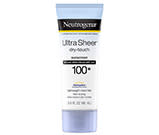Does Sunscreen Expire? A Dermatologist on When to Toss Old SPF


We’re not ashamed to admit that our medicine cabinet looks nothing like Gwyneth Paltrow’s. Ours more so resembles a skincare jungle; a messy jumble of items we use every single day and half-used products we totally forgot we owned—including a few sunscreens that we’re pretty sure we bought three years ago. We already know when to throw away makeup, but do the same rules apply to SPF? In particular, does sunscreen expire?
PureWow recently sat down with dermatologist Gloria J. Stevens, MD, who answered all our burning questions about sunscreen and when it goes bad. (Disclaimer: Her insight will make you think twice about using that bottle of spray sunscreen that suddenly resurfaced from your last vacation to Hawaii.)
Here’s what she had to say.
RELATED: 10 Moisturizers with SPF 30 Under $30
1. Does sunscreen expire?
According to Dr. Stevens, the answer is overwhelmingly, yes. “Do not use expired sunscreen,” she warned. Every bottle should have an expiration date, but you should also make note of the purchase date and toss it after three years. Dr. Stevens does encourage her patients to be pretty discerning about the old bottle of SPF they recently discovered in the bathroom closet.
“There is an expiration date to assure product stability over a period of time,” she said. “A lot of scientific effort has gone into expiration dates. You don’t have a laboratory in your home to know much efficacy has been lost with an expired product. If sunscreen consistency looks questionable, discard it.”
2. Is expired sunscreen less effective?
Dr. Stevens confirmed our suspicions: “Expired sunscreen can be less effective compared to new sunscreen. Chemical sunscreen ingredients can oxidize and physical blockers that contain zinc oxide or titanium dioxide can degrade over time.” Which is not exactly ideal when you’re looking to avoid a sun damage in the first place.
Our expert also revealed that other factors—like heat exposure—can have a major effect on the active ingredients in sunblock. “How many times did that tube of sunscreen go to the beach in the heat and sit in the sun with you? These exposures can affect its stability,” she said. “How many times did dirty hands touch the sunscreen cap allowing for the possibility of bacteria to enter product?” Gross, but you’ve made your point, Dr. Stevens.
If you’re worried about your sunscreen’s effectiveness, be sure to use caution when storing it between uses. “To maintain optimum shelf life, keep sunscreen at room temperature,” Dr. Stevens added. “Keep it out of heat and sun.”
3. Can I use expired sunscreen?
Unfortunately, it’s not recommended. Since expired products aren’t reliable, it defeats the purpose of applying sunblock, which is supposed to protect your skin against harmful rays. “You could get a sunburn if expired sunscreen has lost potency,” Dr. Stevens explained. “Sunburns lead to photodamage and increased risk of developing skin cancer.”
Bottom line: It shouldn’t take you more than three years to finish a bottle of sunscreen. But if you happen to stumble upon a forgotten product, be sure to check the expiration date before bringing it along for your next beach day.
RELATED: 9 Benefits of Using Avocado Oil for Skin (and How to Add It to Your Regimen)
Our Fave Sunscreens to Buy Now

Neutrogena Ultra Sheer Dry-Touch Water Resistant and Non-Greasy Sunscreen Lotion $9

EltaMD UV Clear Facial Sunscreen Broad-Spectrum SPF 46 $36

CeraVe Facial Moisturizing Lotion $14

La Roche-Posay Anthelios Cooling Water Lotion Sunscreen Broad Spectrum $36
PureWow may receive a portion of sales from products purchased from this article, which was created independently from PureWow's editorial and sales departments.

